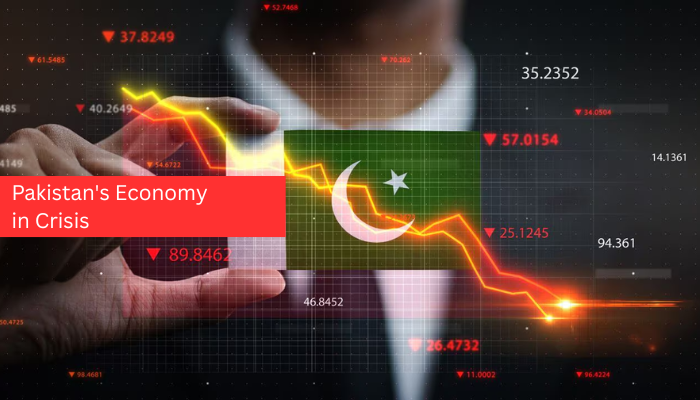After the attack, India has been taking swift actions against Pakistan, which has led to the country once again sinking into a deeper economic crisis. Recently, the escalating tensions between India and Pakistan have resulted in a significant decline in the Karachi Stock Exchange (KSE). The terrorist attack in Pahalgam, Jammu and Kashmir, on April 22, which claimed 26 lives, further aggravated the tension between the two nations, sending shockwaves through Pakistan’s stock market. Between April 23 and April 30, Pakistan’s benchmark KSE-100 index saw a sharp drop of 7,100 points, or nearly 6%, reflecting the mounting pressures on the market due to the political turmoil.
Major Decline on April 30
April 30 witnessed one of the steepest declines, with the KSE-100 index falling by 3.09%, or 3,545 points, closing at 111,326.57. This is considered the biggest single-day decline in recent weeks. The major contributors to this crash were some large-cap stocks, including LUCK, ENGROH, UBL, PPL, and FFC, which collectively dragged the index down by over 1,100 points. These stocks, which hold substantial weight in the market, played a key role in the heavy plunge.
Temporary Relief on May 2
On May 2, the market saw a slight recovery when the KSE-100 index bounced back by 2,785 points, or 2.5%, closing at 114,119. However, experts believe that this recovery may not be sustainable and could just be a “dead cat bounce,” which is an ephemeral upward movement following a substantial fall. As long as tensions between India and Pakistan remain high, the market is likely to face more setbacks, and this brief period of optimism might not last long.
India-Pakistan Tensions as the Leading Cause of Market Downturn
It is important to note that, recently, there have been provocative activities along the Line of Control (LoC) from Pakistan’s side, prompting a stern response from India. This has led to widespread fears of war breaking out, further spooking investors. Such news has increased anxiety among Pakistani investors, prompting a massive sell-off in the stock market. The fear of war has led to a drastic shift in investor sentiment, further deepening the crisis in Pakistan’s economy.
Local Investors Causing Their Own Downfall
The geopolitical tensions between India and Pakistan have had a direct impact on investor sentiment. The atmosphere of uncertainty and fear has led to large-scale selling by investors, both domestic and foreign. Investors in Pakistan have been unloading their stocks, fearing the long-term impact of the rising tensions. Foreign investors have also started pulling their investments out of Pakistan, sensing greater risks in the country’s economic and political instability.
Foreign Investors Losing Confidence
The loss of confidence among foreign investors is particularly alarming. Reports from international rating agencies suggest that the political and economic instability in Pakistan is eroding investor trust. As a result, foreign investors are increasingly withdrawing their funds and shifting them to safer markets. This trend has contributed significantly to the pressure on the Karachi Stock Exchange, further destabilizing the Pakistani financial market.
Pakistan’s Fragile Economy
Pakistan’s economy was already in a fragile state before these geopolitical tensions further exacerbated the situation. Inflation is at an all-time high, foreign exchange reserves are almost depleted, and the strict conditions imposed by the International Monetary Fund (IMF) have burdened the common people. Amid such a dire economic situation, the escalating tensions with India have pushed investors to the edge, further destabilizing the stock market.
Can Pakistan Recover?
Economic experts believe that if the situation doesn’t improve soon, Pakistan may face an even more severe economic disaster. The stock market’s decline is just the beginning of what could be a much larger financial catastrophe. If investor confidence continues to crumble, not only will the stock market face further declines, but Pakistan’s broader economy could also become increasingly unmanageable. The country may struggle to recover if political tensions continue to rise, as the economic fallout from these tensions would have a lasting impact on the financial sector and the broader economy.
This economic downturn is also putting pressure on the Pakistani government to address not just the internal economic issues but also to find a way to reduce external tensions. With the situation growing more volatile, Pakistan’s policymakers face tough decisions ahead in managing both domestic and international affairs. If the situation remains unresolved, Pakistan’s economic recovery could be hindered for years, potentially leading the country into deeper economic isolation.
Also Read: What Does the ‘i’ in iPhone Mean? Discover 5 Hidden Meanings











